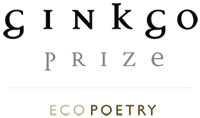At the webinar propped on my kitchen table
the minister asks us to consider (third in a list *
of six) nature based solutions to the crisis
we find ourselves in for the very reason
phrases like this are scattered like straws and clutched
at, smoke rising from a house on fire. In this window
to act, he calls it, a positive inflection point, I try to think
of a single thing that isn’t based within nature –
if that means part of us all and where we live, us
humans and our fellow creatures, flowers and trees,
moss and mushrooms, not forgetting lichen, the dirt
under my fingernails, invisible flora blooming
in my gut. Above my head there’s a tap-tap-tapping
like the woodpecker who sometimes mistakes our house
for a tree. The roofer’s fixing leaks round the chimney
and in the valley between me and my neighbour.
He took over his father’s business but wouldn’t want
his son to: his body’s shot to hell he says from all
the clambering and crouching and clinging he has to do
on roofs all over the county. He’s making a consummate job
of it, clockwise, handling every slate with such care
they could be the armour of Marianne Moore’s near artichoke,
the pangolin, scale lapping scale with spruce-cone regularity.
Up here the wind and the rain puff out their cheeks
but we’ll be okay now the roofer’s doing what he does.
He reminds me I have some nature based solutions
of my own. I open my mouth and start speaking
passionflower, all the words coming out like nails,
pollen-dusted verbs and vowels mending what is broken
by spreading seeds and changing with the weather.
Linda France has published eight poetry collections, including The Gentleness of the Very Tall (Bloodaxe 1994 – a Poetry Book Society Recommendation; longlisted for the Los Angeles Times Book Prize) and Reading the Flowers (Arc 2016 – longlisted for the Laurel Prize; ‘Bernard and Cerinthe’ won the 2013 National Poetry Competition). Her work has been awarded a Society of Authors Cholmondley Award. In 2020 Linda curated the collective poem Murmuration, made into a film with artist Kate Sweeney, as part of her ongoing Climate Writer’s Residency with New Writing North and Newcastle University.

